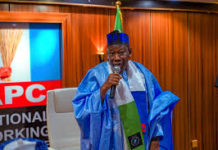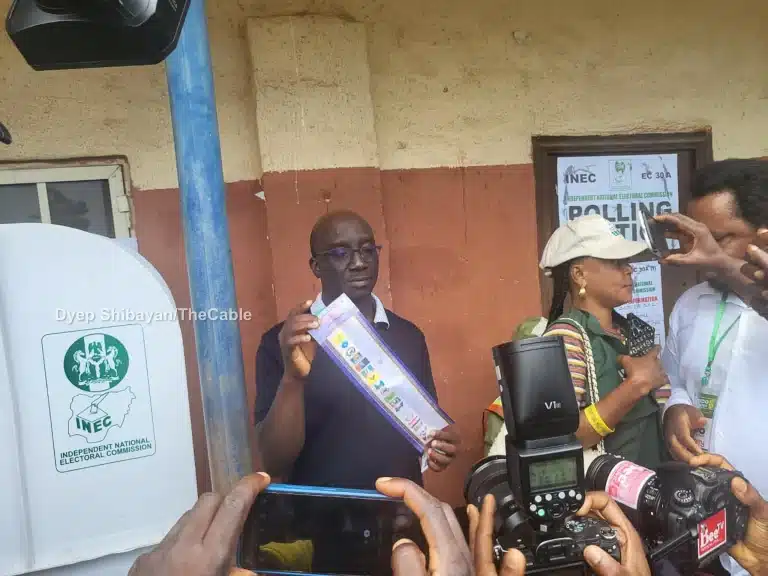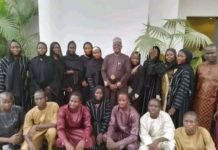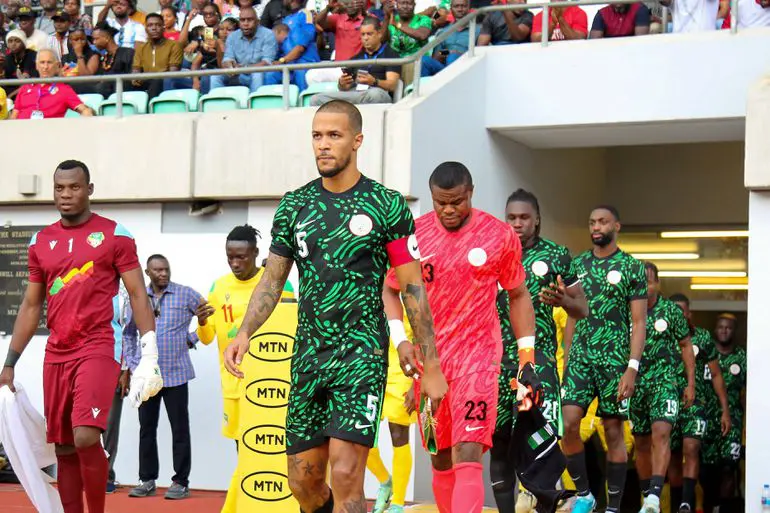Okwe Obi
Mariya Dauda, a 28-year-old mother of 1, is an original inhabitants of the Federal Capital Territory (FCT) Abuja. She graduated from the College of Education, Zuba. She had hoped that her indigene-ship of Abuja and her certificate would be a leeway for a meaningful employment, since 2006.
But that expectation has not come to fruition ever since because of her gender. She narrated how those she looked up to shattered her dream of becoming a teacher in the workforce of the Federal Capital Territory Administration (FCTA). She claimed she was told to get married and manage the home front, because of gender.
She said she got subdued and disappointed by the constant discrimination against meaningful employment, into the FCDA workforce.
“Most people believe that only men, especially those with money are expected to get jobs in the FCTA. I know men that I am more qualified than that got employed in the FCTA. Out of 20 of us that applied only a handful of women were considered. The rest were men,” she said amid gloom.
Just like Dauda, Happiness Saidu, a polytechnic graduate from Nasarawa State, is an office assistant, who has been a contract staff for years in the (FCTA). Before her eyes, people got employed and promoted.
Saidu is not happy because her male counterparts have all been converted to permanent staff of government agency.
She said she had searched within to know the problem, little did she know that a senior boss whom she had rejected his sexual advances was behind her ordeals.
“Who will you report to? Nobody will believe your story. Any time my case comes up, they will step it down. Filing a formal complaint is just a waste of time,.or better still, challenging their competencies. I am just watching,”
she said.
Before the travails of Daua and Saidu, Over the years, women have been at the receiving end of career retrogression both in elective, appointive positions, or in the civil service, especially in Abuja.
In fact, since the Seat of Power was moved from Lagos State to Abuja, in 1976, only one female senator has emerged, and that is Ireti Kingibe; a victory achieved, many believe, was because of the political tsunami of the Labour Party (LP) and the Peter Obi factor.
No female member of the House of Representatives, no female council chairman and no substantive female minister of the FCT. They have only assumed the position of junior ministers.
They are Professor Miriam Ikejiani- Clark, Olajumoke Akinjide, Ramatu Tijianni, and Mariya Mahmoud.
Social scientists attributed the problem to culture, religion, marital demands and illiteracy.
In some cultures, women are confined to their homes; to give birth, raise children and cook for the family. Religion has slowed down the career of women, as they are not allowed to do certain jobs at a certain time or stay beyond a particular period of time in the service.
Education is believed to be the exclusive right of men and not women, with the believe that most girls would end up getting married without making good use of their certificates.
But the cries, protests and agitations led to the birthed of the National Gender Policy (NGP), to bridge the void.
NGP was developed in 2006 to provide strategic policy guidance for mainstreaming gender at all levels and to address the inequalities that exist in the socioeconomic sphere.
In tandem with emerging global trends, particularly as the global development agenda translated from the Millennium Development Goals to Sustainable Development Goals, a review of the National Gender Policy became expedient to address current challenges.
Now, when there was no significant progress as women were relegated to the background, the NGP was revised (2021-2026). This is time, it is expected to nudge Nigeria to give room for gender equality and empowerment of children, adolescents, and women.
Unlike the 2006 National Gender Policy that was conceptualised on institutional engagement, the 2021-2026 revised NGP placed practical and strategic gender needs at the heart of both the policy and Nigeria’s common objective of achieving social inclusion and promoting shared values regardless of ethnicity, sex, or other differences.
But a Human Rights Activist, Bimbo Adebola, complained that Nigeria was not yet ready to champion the course of women through the implementation of NGP.
“What we are seeing is what will continue to play out. The FCDA is not ready to give women a chance. Look at the work force, you will see that men are dominating.
“Is it that we do not have competent women? No. We live in a chauvinistic society. Look at countries India, China and the United States of America, women are growing professionally.
“Do they not have tradition and culture? They do. But they do not allow it to affect the development of women.
“In my own opinion, the Ministry of Women Affairs is just a ceremonial agency. Nothing has changed. Government must sit up. Without the empowerment of women, Nigeria will not grow.”
A senior director in the FCDA who opted to be anonymous, said there was no policy against career retrogression of women. He said the NGP was already in place.
“It baffles me when people claim that women are not given the chance to grow in the civil service. That is incorrect.
“We all know the civil service rules that there are stages of career growth. It is not automatic. I will encourage more women to come and seek employment. I know that it is not given as an la carte.
“Meanwhile, we have female directors who have grown in the system. It should not be painted as men against women. No. We are one,” he said.
This investigation is for the GENDER, THE AGENDA project for Gender
Strategy Advancement International (GSAI) supported by the Wole Soyinka
Center for Investigative Journalism (WSCIJ), and the MacArthur
Foundation
















































